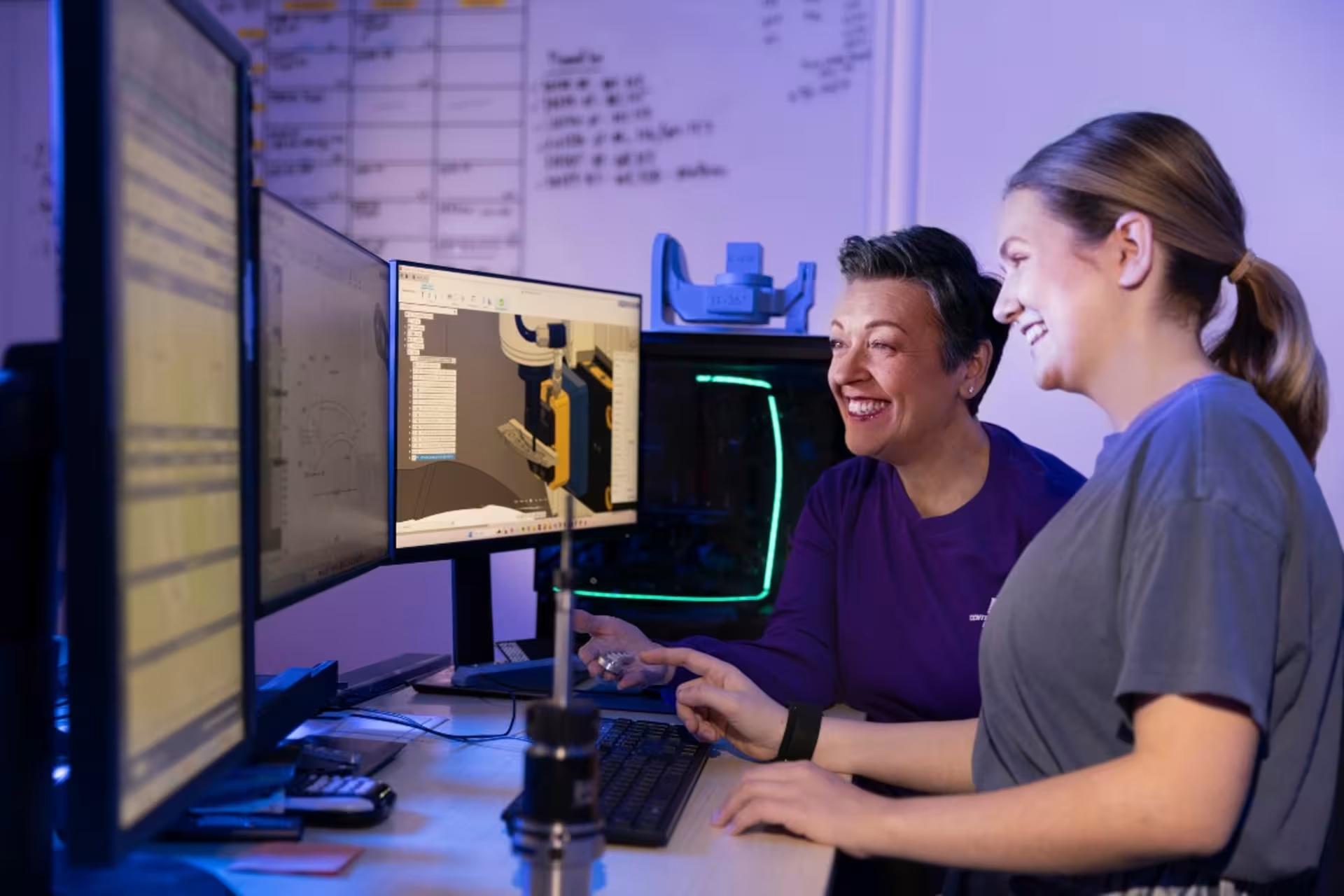


If you’re considering a bachelor’s degree in software engineering, we’ve gathered a few frequently asked questions that may be essential in helping you make an informed decision about your educational and professional goals.
What degree do you need for software engineering?
Is a software engineering degree worth it?
Are software engineers highly sought after?
What is the difference between a software engineer and a software developer?
Software engineering majors focus on using critical thinking skills to produce and maintain IT design, large scale data stores and cloud-based systems. Courses are taught by professionals in their respective fields who share extensive engineering and software knowledge. To complete the software engineering degree, students are also required to submit a capstone project applying their knowledge and skills learned throughout the hands-on curriculum.
This 128-credit software engineering program will cover topics including:
Eliciting project requirements
Writing algorithms
Embedded systems
FPGA design and development
Software development and deployment
System verification
Design and architecture
Software validation
Software analysis and the Software Development Life Cycle (SDLC)
Median annual wage for software developers as of May 2021(See disclaimer 1)
Estimated job growth for software developers as of 2021 to 2031(See disclaimer 2)
Through GCU’s software engineering courses, you will study communication skills and learn to work collaboratively in a team environment. Leadership capabilities will also be explored by collaborating with others, recognizing various leadership styles and examining the consequences of choice.
A large focus of GCU’s software engineer program is personal growth. Students are expected to grow both professionally and intellectually, as well as learn to adapt to organizational changes through group-study and self-study. This program will teach students how to show clarity and logic in thought by asking questions and pursuing knowledge based on historical, current and reliable information in the software engineering field.

Students in this BS in Software Engineering program will have the opportunity to apply and showcase their understanding of the software engineering body of knowledge, as well as various technical practices and technologies. Through the program, you will be taught the skills to tackle the design, development, validation and implementation of intricate software systems.
Graduates may move on to pursue coveted roles within an organization, at any stage of the software development life cycle, including:
Graduates of GCU’s software engineering program may also be prepared to work in a variety of settings including embedded applications development, social media companies, healthcare providers, large corporations, financial institutions and more.
Campus: $8,250 per semester [More Info]
Up to 90 credits, only 84 can be lower division
Credits: Fill out the Lopes Eval to find out what will transfer
Admission Requirements (Bachelor's)
OR 2.5+ Unweighted GPA and
Admission requirements may differ based on degree level, program and modality, or transfer status. Some programs of study may require a higher GPA and/or other qualifying criteria for admission. Please review full admission and program requirements in the University Policy Handbook.
*Math and reading only on a 1600 point scale (test date after 3/1/2016). SAT score of 1380 required for 2400 point scale (test date before 3/1/2016).
Studying core software engineering skills can provide a strong foundation for aspiring professionals in the field. The software engineering courses delve into fundamental principles, methodologies and best practices essential for planning, developing and maintaining software systems.
Software engineers concentrate on how a software project is performing by:
Being knowledgeable of every phase in the Software Development Life Cycle (SDLC)
Understanding how to engineer a software solution to complex problems
Obtaining knowledge of how software can integrate with and make hardware come to life
Differentiating software development processes
Utilizing estimation techniques and measurement
Exercising strong communication skills across disciplinary lines
Performing risk management assessments
The Bachelor of Science in Software Engineering degree from Grand Canyon University teaches students how to use specialized engineering, business and computer science practices and technologies to find solutions for complex software issues. This interdisciplinary program is ideal for aspiring software engineers, project managers or entrepreneurs.
The BS in Software Engineering strives to equip graduates with a deep understanding of business principles and computer science fundamentals that focus on analyzing complex problems, identifying software requirements and designing innovative solutions that align with organizational goals. Our professional faculty teach a comprehensive curriculum that covers programming, data analysis, software development methodologies, strategic planning and business analysis.

Software engineers are typically expected to have technical knowledge and understanding, verifiable personal accomplishments, and experience with utilizing embedded systems, as well as individual and team-based projects. Students in the software engineer program are taught to look after complicated systems and contribute to the analysis, design and program development of those systems. Additionally, software engineering majors will explore testing tools and methodologies, design patterns, Cloud and IoT integration, MLOps and fault-tolerant systems.
Nurturing vital technical skills is just the beginning of this program's emphasis. It places a strong focus on providing a comprehensive understanding of the Software Development Life Cycle (SDLC), enabling graduates to explore avenues that promote successful teamwork across all SDLC stages.

Gain the sought-after skills, knowledge and practical experience needed to pursue opportunities in the dynamic field of software engineering.